Science
How to Properly Prepare for the Apostles Fast, and Whether a Modern Person Needs to Fast
5. June 2018 - 11:22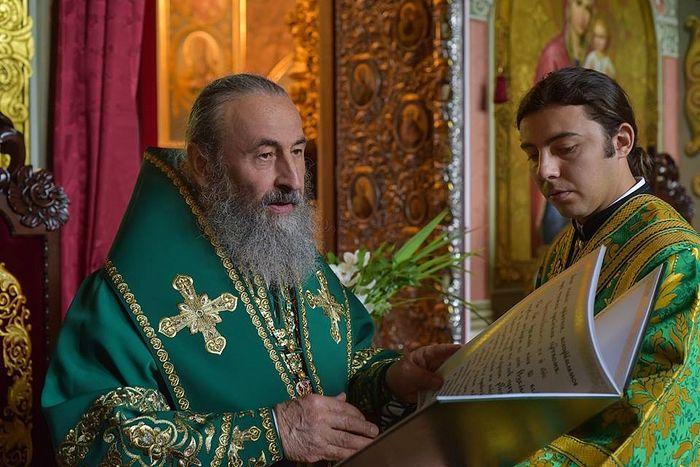 In this brief interview, His Beatitude Metropolitan Onuphry of Kiev and All Ukraine speaks on fasting, modern man, and role models.
In this brief interview, His Beatitude Metropolitan Onuphry of Kiev and All Ukraine speaks on fasting, modern man, and role models.
—Your Beatitude, Pentecost ends the Paschal cycle. We start counting anew from this week. How does this period differ from the other cycles of the year?
—The holy Church was born on Pentecost, and after the feast it began to actively work and preach; similarly, after Pentecost, a new enumeration of every following Sunday begins in the Church’s liturgical year, in which are recalled, besides the mystery of the Resurrection, notable Gospel events or events from Christian history. For example, on the first Sunday, the Synaxis of All Saints is remembered, and on the second, All Saints Who Shone Forth in the Russian Land, and so on.
Translation of the relics of St Nicholas the Wonderworker from Myra to Bari
21. May 2018 - 15:55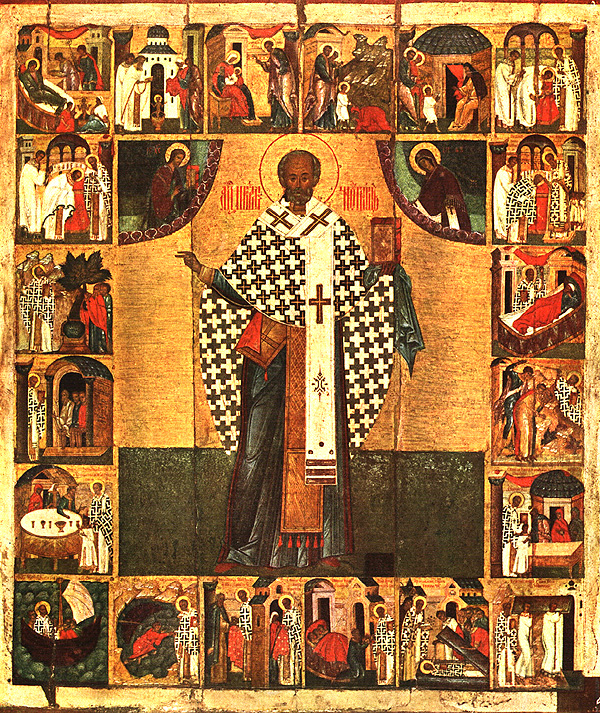 The Transfer of the Relics of Saint Nicholas to Bari in Italy. His Life is found under December 6.
The Transfer of the Relics of Saint Nicholas to Bari in Italy. His Life is found under December 6.
In the eleventh century the Byzantine Empire was going through some terrible times. The Turks put an end to its influence in Asia Minor, they destroyed cities and villages, they murdered the inhabitants, and they accompanied their cruel outrage with the desecration of churches, holy relics, icons and books. The Mussulmen also attempted to destroy the relics of Saint Nicholas, deeply venerated by the whole Christian world.
Holy Queen Tamar (†1213)
16. May 2018 - 9:03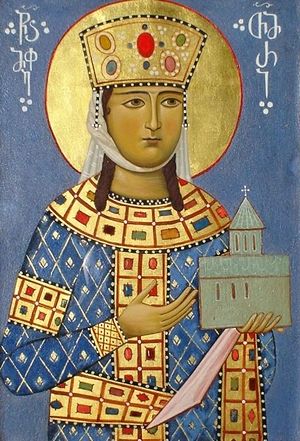 In 1166 a daughter, Tamar, was born to King Giorgi III (1155–1184) and Queen Burdukhan of Georgia. The king proclaimed that he would share the throne with his daughter from the day she turned twelve years of age.
In 1166 a daughter, Tamar, was born to King Giorgi III (1155–1184) and Queen Burdukhan of Georgia. The king proclaimed that he would share the throne with his daughter from the day she turned twelve years of age.
The royal court unanimously vowed its allegiance and service to Tamar, and father and daughter ruled the country together for five years. After King Giorgi’s death in 1184, the nobility recognized the young Tamar as the sole ruler of all Georgia. Queen Tamar was enthroned as ruler of allGeorgia at the age of eighteen. She is called “King” in theGeorgian language because her father had no male heir and so she ruled as a monarch and not as a consort.
At the beginning of her reign, Tamar convened a Church council and addressed the clergy with wisdom and humility: “Judge according to righteousness, affirming good and condemning evil,” she advised. “Begin with me — if I sin I should be censured, for the royal crown is sent down from above as a sign of divine service. Allow neither the wealth of the nobles nor the poverty of the masses to hinder your work. You by word and I by deed, you by preaching and I by the law, you by upbringing and I by education will care for those souls whom God has entrusted to us, and together we will abide by the law of God, in order to escape eternal condemnation.… You as priests and I as ruler, you as stewards of good and I as the watchman of that good.”
Serbian Church canonizes three martyrs
15. May 2018 - 9:56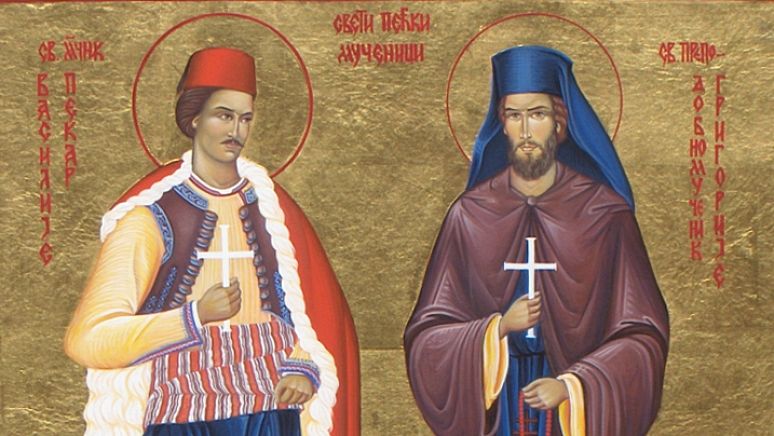 At its latest session, from April 28 to May 10, the Holy Synod of the Serbian Orthodox Church resolved to canonize three holy martyrs among the saints, reports The Union of Orthodox Journalists.
At its latest session, from April 28 to May 10, the Holy Synod of the Serbian Orthodox Church resolved to canonize three holy martyrs among the saints, reports The Union of Orthodox Journalists.
Prophet Jeremiah
14. May 2018 - 10:19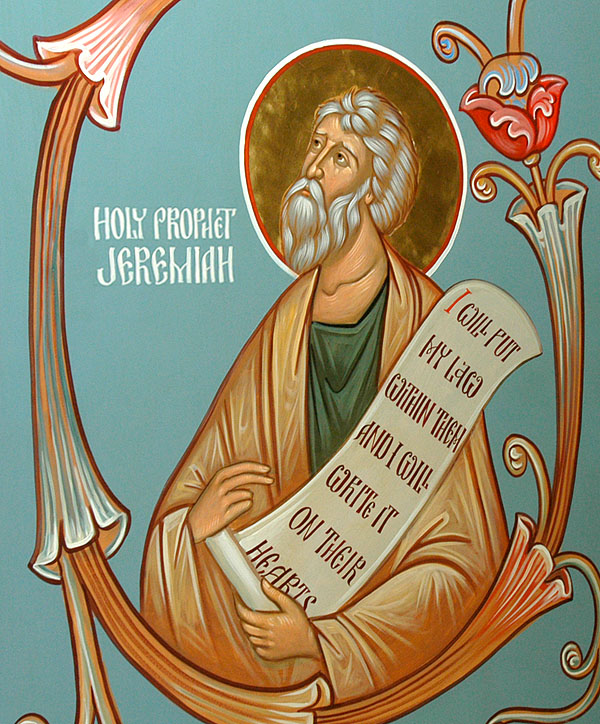 The Holy Prophet Jeremiah, one of the four great Old Testament prophets, was son of the priest Helkiah from the city of Anathoth near Jerusalem, and he lived 600 years before the Birth of Christ, under the Israelite king Josiah and four of his successors. He was called to prophetic service at the age of fifteen, when the Lord revealed to him that even before his birth the Lord had chosen him to be a prophet. Jeremiah refused, citing his youth and lack of skill at speaking, but the Lord promised to be always with him and to watch over him.
The Holy Prophet Jeremiah, one of the four great Old Testament prophets, was son of the priest Helkiah from the city of Anathoth near Jerusalem, and he lived 600 years before the Birth of Christ, under the Israelite king Josiah and four of his successors. He was called to prophetic service at the age of fifteen, when the Lord revealed to him that even before his birth the Lord had chosen him to be a prophet. Jeremiah refused, citing his youth and lack of skill at speaking, but the Lord promised to be always with him and to watch over him.
He touched the mouth of the chosen one and said, “Behold, I have put My words into your mouth. Behold, I have appointed you this day over nations and kingdoms, to root out and to pull down, to destroy and to rebuild, and to plant” (Jer. 1:9-10). From that time Jeremiah prophesied for twenty-three years, denouncing the Jews for abandoning the true God and worshipping idols, predicting sorrows and devastating wars. He stood by the gates of the city, and at the entrance to the Temple, everywhere where the people gathered, and he exhorted them with imprecations and often with tears. The people, however, mocked and abused him, and they even tried to kill him.
Sixth Sunday of Pascha: The Blind Man.
14. May 2018 - 10:16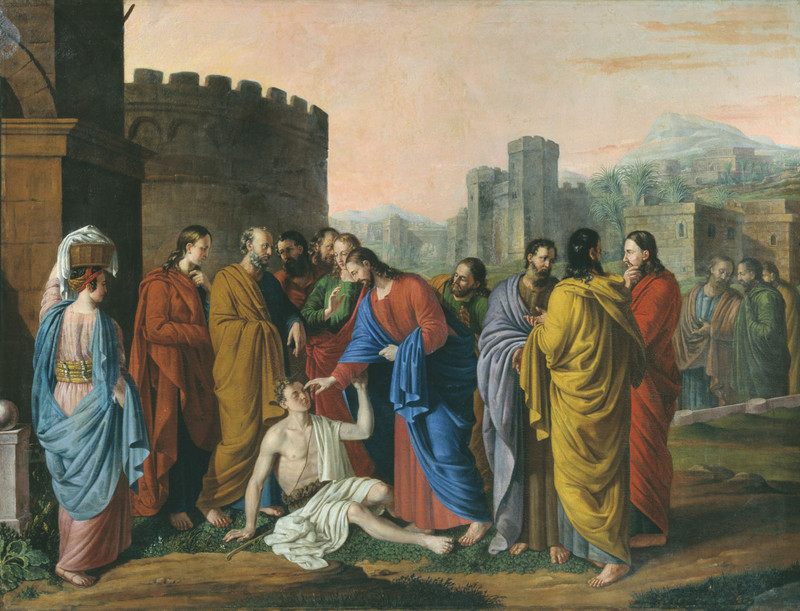 In the name of the Father and of the Son and of the Holy Spirit.
In the name of the Father and of the Son and of the Holy Spirit.
Christ is Risen!
Today’s Sunday is called the Sunday of the Blind Man. The event described in the Evangel of Saint John is confirmation of the words said by the Saviour, “I am the light of the world”.

